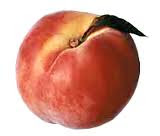*****************************
4797 Part I
*****************************
At last it’s here: My first day on patrol.
I’m now among the carrier elite.
What has arrived is what has been my goal.
I’ve needed this to make my life complete.
Along with mine, I sense my mother’s pride.
Her daughter made the grade, like she before.
We’re like with like; we’re walking side by side.
The doubt that we’d be so exists no more.
There’s but one trouble that disturbs this scene:
the candidate who didn’t get the news.
We both knew the committee had to screen.
It still hurts that my good friend had to lose.
Through my success, another lost her turn.
I should not waste time on the weak, I’m told.
But what of newborns who have all to learn?
They’d have no chance at life were we so cold.
©2010 Louis A. Merrimac
But what of newborns: Merrimac has indicated that this was the germ of the story. Supposedly he had decided to figure out the origin of altruism and sympathy toward the less fortunate, which he was convinced are maladaptive, and having hit upon a solution to the enigma, took it further to reach the hypothesis in Canto IV. I find it hard to imagine that someone would put that much effort into an idea and then give it such relatively light treatment. Ah, but this is Merrimac, so it is possible. An anonymous correspondent of mine, who is familiar with but not a participant in some of the debates among evolutionists, thinks it could be worked into a theory no less plausible, but no more testable, than most of the others she has seen. She says the Sociobiologists like to show how altruistic selfless behavior is genetically innate and therefore becomes a moral value. She points out that if it’s innate, it doesn’t need to be a value. We don’t feel that kind of obligation to eat or to breathe.
Subscribe to:
Post Comments (Atom)

No comments:
Post a Comment